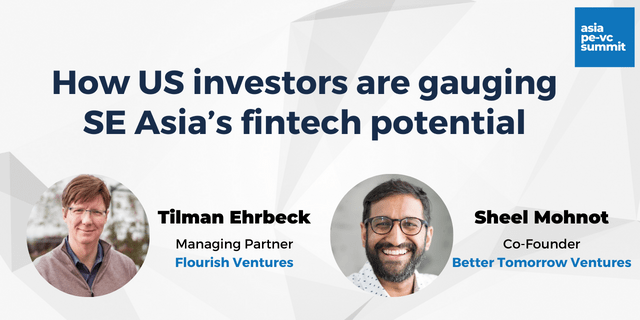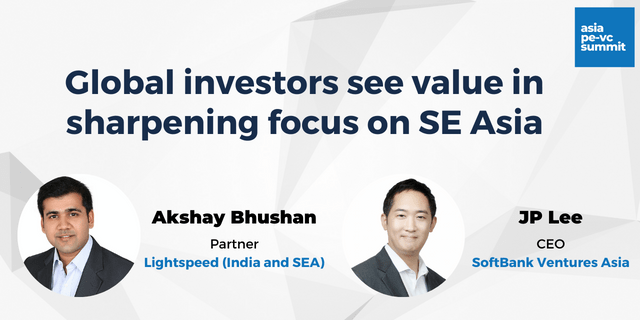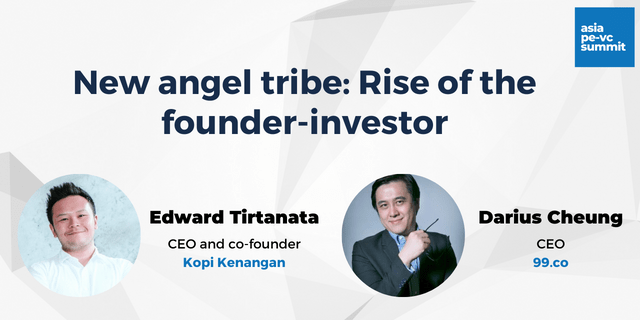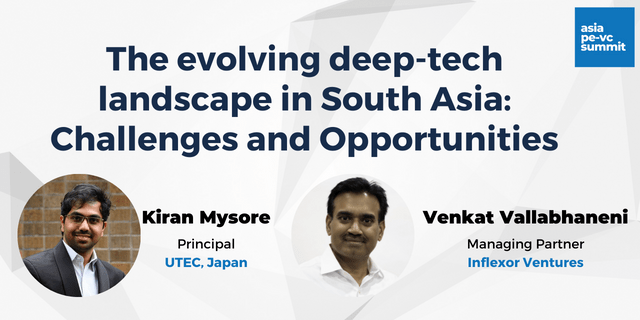We have put together seven sessions, featuring 15 top investors and founders, covering Asia’s hottest investment themes and trends for our upcoming Asia PE-VC Summit 2021 on 28 September – 1 October.
We have lined up panel discussions on themes such as fintech, life sciences, deep tech, consumption and also how Silicon Valley and global investors are gauging the opportunities in SE Asia.

Southeast Asia’s fintech startups accounted for the most number of deals in 2020 garnering around $1.26 billion in investor commitments, according to DealStreetAsia’s proprietary data. The bulk of the funding, or $634 million across 31 deals, went to e-payment startups that have seen rapid adoption driven by the region’s vast under-banked population.
In this panel, we feature two US-based fintech investors who will share their insights on the fintech scene in SE Asia. Spun out of the Omidyar Network in 2019, US-headquartered Flourish Ventures focuses on neobanks, insurtech and embedded finance. Some of its Southeast Asian portfolio companies include Grab Financial, Qoala, Tanihub and ShopUp. Flourish Ventures’s Ehrbeck believes SE Asia has arrived at a crossroads where it may borrow multiple influences from fintech ecosystems across the US, China and India.
Better Tomorrow Ventures is a $75-million fund that leads rounds in pre-seed and seed-stage fintech companies globally. Co-founder Sheel Mohnot believes fintech is a great way to improve people’s lives. Based in San Francisco, Better Tomorrow invests globally as it believes there is talent and unmet needs everywhere. Better Tomorrow Ventures has made some Asian bets including in Indonesian startup Brick and Pakistan-based Creditbook. Mohnot is also a limited partner in AngelList-backed iSeed’s micro fund for SE Asia.
Join this session to get a nuanced perspective on the region’s fintech potential.

SoftBank Ventures Asia and Lightspeed Venture Partners, two of the most prolific global investors with a strong regional focus, have actively deepened their footprint in the SE Asian tech space.
Set up as a SoftBank Group subsidiary called SoftBank Ventures Korea in 2000, the firm rebranded as SoftBank Ventures Asia in 2019 to better reflect its expanded focus. The VC firm has made several notable investments in SE Asia such as Indonesian e-commerce unicorn Tokopedia, Vietnamese online marketplace Sendo, and Singapore’s used car platform Carro. It has over $1.1 billion of funds under management and has invested in over 250 companies across 15 funds. The firm’s mandate is to invest in startups that leverage AI to build highly disruptive products and services.
Lightspeed Venture Partners officially opened its presence in SE Asia with an office in Singapore last year. Its prominent investments in the region include Grab, Chilibeli, Ula, Shipper, NextBillion, Nas Academy and Endowus. Lightspeed typically invests from the seed to Series B stages in the commerce, fintech, edtech and SaaS sectors. Lightspeed invests in the region from its $890 million Lightspeed Venture Partners XIII (US fund) and $275 million Lightspeed India Partners III (India fund).
We will learn more from J P Lee and Akshay Bhushan as they take us through what has changed in the tech investment landscape post-pandemic and the emergence of new technologies and business models that will ride on the accelerated online adoption in the region.

There has been a noticeable surge in founders of mature startups doubling up as angel investors and cashing in on the region’s vibrant entrepreneurial ecosystem. In Indonesia, SE Asia’s largest market, founders are backing their own tribe to give back to the ecosystem and to capitalise on the unmissable growth opportunity that the region presents.
Indonesia is also attracting angel investment from Indian founders, who are seeking opportunities in the SE Asian country based on their learnings back home. The reasons are not too far to seek – the internet economy in Southeast Asia is expected to touch $300 billion by 2025, per the Google-Temasek-Bain report.
This session will explore how active angel investors straddle both roles – of founders and investors – effectively. Our panelist Edward Tirtananta, the co-founder of Kopi Kenangan, has injected capital in as many as six tech startups including GudangAda, Otoklix, Klinik Pintar, BukuKas. Darius Cheung, co-founder/CEO at 99.co, has meanwhile made over 10 investments and scored three exits. We will ask our panelists what drives them to angel investing – financial returns, brag rights, or fostering the region’s ecosystem, or all the above.

The COVID-19 crisis has accelerated digitalisation of consumer-oriented businesses as movement curbs meant people were ordering products and services online. Some of these user behaviours may well outlast the pandemic and businesses are beginning to shift towards an omni-channel approach to reach consumers across multiple touch points. How are consumer businesses adapting to this change? Which are the categories that are seeing explosive growth even during the pandemic? What are some of the pandemic-induced user behaviours likely to stay in the long-term? How are VCs assessing the investment potential and exit horizon in consumption play?
Alpha JWC’s Jefrey Joe and Venturi Partners’s Nicholas Cator will share their insights on how they view the consumption story unfolding in South Asia.
Singapore-based Venturi Partners has secured the first close of its India- and Southeast Asia-focused consumer fund at $100 million. The fund has a targeted size of $150 million. Venturi Partners Fund I will focus on investments across the consumer space in FMCG, education, and healthcare services. The fund made its maiden investment in Livspace, an Indian online home design firm, last year.
Jakarta-based Alpha JWC is raising a $300-million new fund that is targeting to invest in new consumer-oriented models and fintech sectors from the seed to Series B stages. Alpha JWC’s prominent portfolio firms include coffee chain Kopi Kenangan, B2B e-commerce platform GudangAda, and online brokerage firm Ajaib. The third fund will put Alpha JWC among a handful of Southeast Asian VCs that have raised over $200 million for a vehicle.

Seen as a nascent space, Deep Tech – which refers largely to companies creating a tough-to-replicate, complex and scientific solution to a problem – is slowly picking up in South Asia in terms of deal activity and investor interest. The sector enjoys favourable government policies particularly in Singapore, the hub for much of the action in the region.
This panel will explore if South Asia has it to become the next global hub for deep tech? What would it take for the region to get there? Will the region benefit from the low cost of commercialisation of a deep-tech solution? Will access to a huge market in its backyard prove to be an advantage?
UTEC Japan’s Kiran Mysore and Inflexor Ventures’s Venkat Vallabhaneni will take us through their deep-tech investment thesis, the region’s outlook and challenges and some of their most interesting bets.
The University of Tokyo Edge Capital Partners or UTEC hit the first close of its fifth global deep tech fund at $275 million and is targeting to invest more heavily in Southeast Asia. In SE Asia, it has invested in Singapore-based deep tech firms like SWAT Mobility, Immunoscape, OPALai and Tricog. Its portfolio in India includes Bugworks Research and the firm is also an LP in Blume Ventures Fund III.
Inflexor Ventures recently closed its technology fund at $81 million to back B2B/enterprise startups leveraging deep tech, technology IP and innovation. Inflexor has so far invested in Steradian Semiconductors, AR-based edtech firm PlayShifu; Vitra.ai, an AI-ML-based content translation platform and Kale Logistics, an AI & blockchain-enabled logistics tech company.

Asia is marching ahead as a hub for global alternative food companies seeking to expand to gain a leading position in some of the world’s largest consumer markets. Alternative protein startups, the nascent category touted as the future of food, have been fast garnering investor interest with deal value in the region growing to $155 million in 2020 compared to just $5.3 million in 2019.
Apart from sustainability concerns and shifts in consumption behaviour, what is driving growth in the sector? How are alt protein companies changing the economics of food? What do investors stand to gain?
Featuring top executives from Proterra Asia, Dao Foods and Temasek accelerator, this panel will explore the facets driving the sector and the challenges to the road ahead.
Proterra, which was carved out of agribusiness giant Cargill unit Black River Asset Management in 2016, has some $2.5 billion in AUM. Investments in food account for the largest share of the total portfolio. Proterra is currently raising an up to $800 million Asia-focussed agribusiness fund, and Lin believes that direct exposure to food, which forms the largest portion of the continent’s Consumer Price Index basket, is requisite for a direct connection with the Asian consumer.
Cross-border investment firm Dao Foods is targeting to back investments in about 30 China-based alternative protein startups in the next three years. Temasek Life Sciences Accelerator, a JV between Temasek Life Sciences Laboratory and Vertex Holdings, is Singapore’s first agri-bio-sci-tech incubator that aims to incubate, nurture and grow disruptive life science innovations into early stage companies. Singapore’s Temasek is an active investor in the alternative protein space.

With proactive government policies, an ecosystem that fosters innovation, intellectual property rights protection, strong corporate-academia linkages in the field of research, the presence of multinational players and a robust vibrant entrepreneurial cluster, Singapore is considered a regional hub for life science-based innovation. The city-state has channelled nearly S$4 billion in public sector research funding towards the health and biomedical sciences domain, according to EDB Singapore data.
In this panel, we feature two Singapore-based life science companies MiRXES and Esco Lifesciences, who have raised big-ticket rounds this year, have drawn up global expansion plans and are reportedly exploring listing plans.
Singapore-based cancer diagnostics company MiRXES raised $77 million in Series C funding led by CR-CP Life Science Fund. Founded in 2014, MiRXES is a spin-off from Singapore’s AStar. MiRXES will use the proceeds to double its global talent pool to 400 over the next two years. MiRXES has operations in China, Japan and the US.
Singapore-based Esco Lifesciences closed an oversubscribed $200-million Series A and crossover round led by Vivo Capital and Novo Holdings. Esco is targeting strategic bolt-on M&As, an accelerated expansion in China and setting up an innovation hub in Boston. Esco is looking at building a global life sciences ecosystem between Singapore, the US and China, with Singapore as the focal nexus.
The $299 Super Saver rate, expiring 31 July, 11.59pm SGT, saves you a whopping $200 off standard admission!




